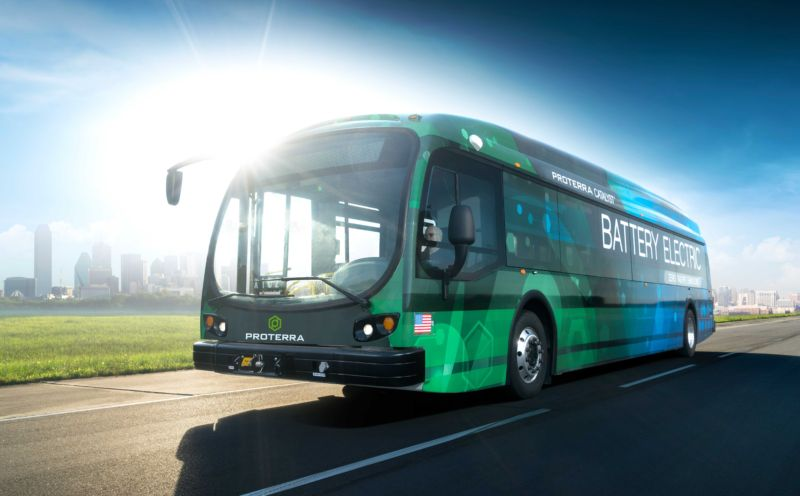 |
| Reviews and Templates for Expression We |
A Proterra electric bus just drove 1,100 miles on a single charge

On Tuesday, Proterra revealed that one of its Catalyst E2 Max electric buses just set a new world record for the longest distance traveled by an electric vehicle on a single charge. The bus, which packs a hefty 660kWh of storage—equivalent to 11 Chevy Bolts—drove a total of 1,101.2 miles (1,772.2km) at the Navistar Proving Grounds in Indiana. It's quite an impressive feat, considering the previous record holder was a lightweight experimental single-seat EV.
While 1,100 miles is a lot more than an average bus drives in a day, Proterra's record may prove quite helpful in persuading range-anxious transit authorities to ditch internal combustion in favor of battery power for future fleets.
Of course, the other factor is how long it takes to recharge. This is probably less of an issue with vehicles like buses, delivery trucks, and garbage trucks that spend their lives crawling around cities, since that kind of low-speed, stop-and-go duty cycle plays right into the strengths of an electric powertrain, and the vehicles can recharge at the end of their route. Proterra also developed a high-speed charging system for buses (which it's offering to anyone without licensing fees), although even with its high-voltage system in operation, the 660kWh record-breaking bus would still need at least an hour to get back to a full charge.
The electric medium- and heavy-duty vehicle segment appears to be gathering steam. In addition to Proterra and the Chinese EV bus builder BYD, Daimler recently announced plans to supply short-haul electric trucks to UPS. And both Cummins and Tesla are working on electric semi trucks.
Beyond pure EVs, several other outfits are developing or selling hybrid medium- and heavy-duty EVs: Wrightspeed has its hybrid garbage trucks, Toyota is testing hydrogen fuel cell trucks at the Port of Long Beach, and Nikola and Bosch just announced plans to team up on hydrogen fuel cell long-haulers.
All of the EV truck and bus companies Ars has spoken with in the past have touted the superior cost-per-mile of EVs versus fossil fuel vehicles, and the fact that EV powertrains have few moving parts should mean maintenance costs are lower, so the higher purchase price should be recouped within three to four years. "Driven by the best cost savings-per-mile, we believe the business case for heavy-duty electric buses is superior to all other applications, and that the transit market will be the first to transition completely to battery-electric powered vehicles," said Ryan Popple, Proterra's CEO.
|
|
|
|
Copyright remains with the original authors |